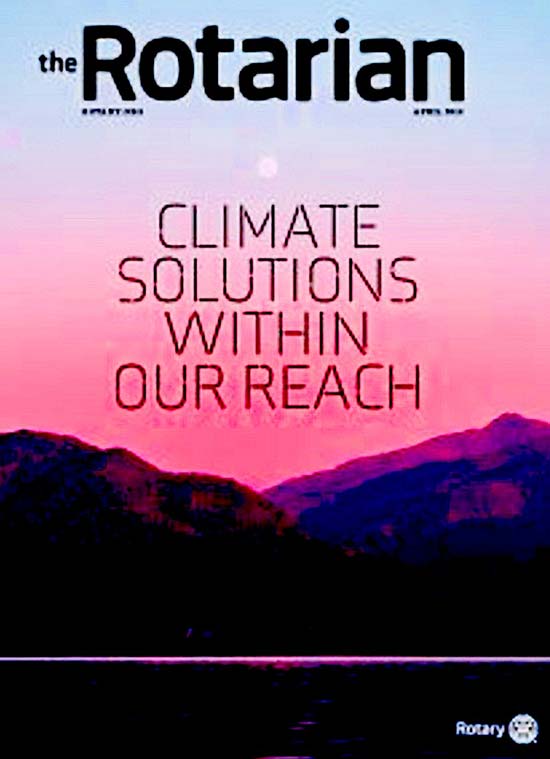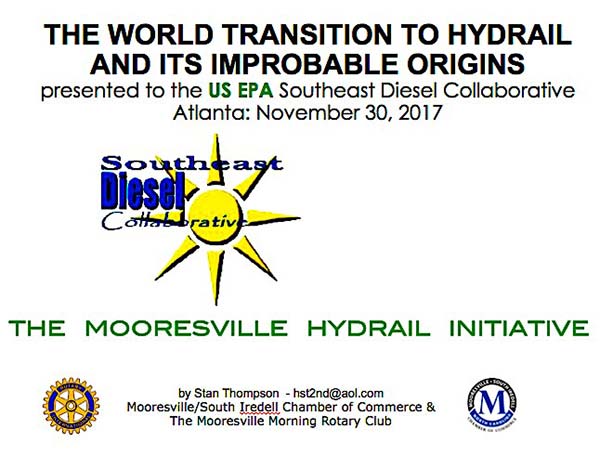By guest blogger Stan Thompson
Bill Thunberg and I, two of the three founders of the Mooresville Hydrail Initiative (Google it), are also members of the Mooresville NC, USA, Rotary Club. Imagine our delight when we received this month’s The Rotarian Magazine with its cover page article, “CLIMATE SOLUTIONS WITHIN OUR REACH.”

In the featured story, Barry Rassin, President of Rotary International, points out that climate change does not precisely fit within any one of Rotary International’s six prescribed Areas of Focus. “It’s broader than that. We have to look at the world as a whole and how we can make it a better place. If we’re losing countries due to sea level changes, if stronger storms are disrupting water supplies or destroying people’s livelihoods, that’s more people who are going to be disadvantaged.”
Mr. Rassin knows climate change up close and personal. His hilltop Bahamian home on New Providence Island could become a beachfront property.
What Mr. Rassin didn’t know, —but we hope someone will soon tell him—is that the emerging hydrail transition of railroads to hydrogen derived from wind, solar, industrial waste, biomass, nuclear energy and other zero carbon sources may be the single largest climate change mitigation initiative now active on the planet—and its originators and instigators are Rotarians.
We convened the First International Hydrail Conference in Charlotte, NC, in 2005. Only the USA, Denmark, Japan and Canada were involved.
Today eight manufacturers are either building hydrail trains or have announced they soon will. Twenty countries have hydrail trains running or have announced hydrail projects.
When I joined Rotary International around 2012 it was at the invitation of our local club president, Michael Gander. Mike saw then what Barry Rassin sees now.
But what no one foresaw was that the sharp definition of the Six Areas of Focus would prevent the Mooresville Club from engaging Rotary International in our successful world-wide hydrail project.
It would have been a perfect fit. We have colleagues in China, Korea, India and several European countries who would, if asked, be delighted to be guest speakers on the newest iteration of railway traction technology at Rotary Clubs near them.
Rotary marshaled its world-wide resources to eradicate polio and now that’s very nearly accomplished. Leading climate change mitigation would be a most appropriate Act Two. Perhaps Bill and Melinda Gates, who backed Rotary’s polio commitment, could help focus American attention on expediting hydrail.
So, Mr. Rassin, if someone calls this blog to your attention, please ask The Rotarian to consider doing a follow-up story on the climate change mitigation benefits of the Mooresville Hydrail Initiative! We need all the help we can get to engage caring people in the world hydrail transition.
The Mooresville Hydrail Initiative is described in this slide presentation to the US EPA’s 2017 Southeast Diesel Collaborative workshop in Atlanta: https://southeastdiesel.files.wordpress.com/2018/01/hydrail-presentation.pdf
